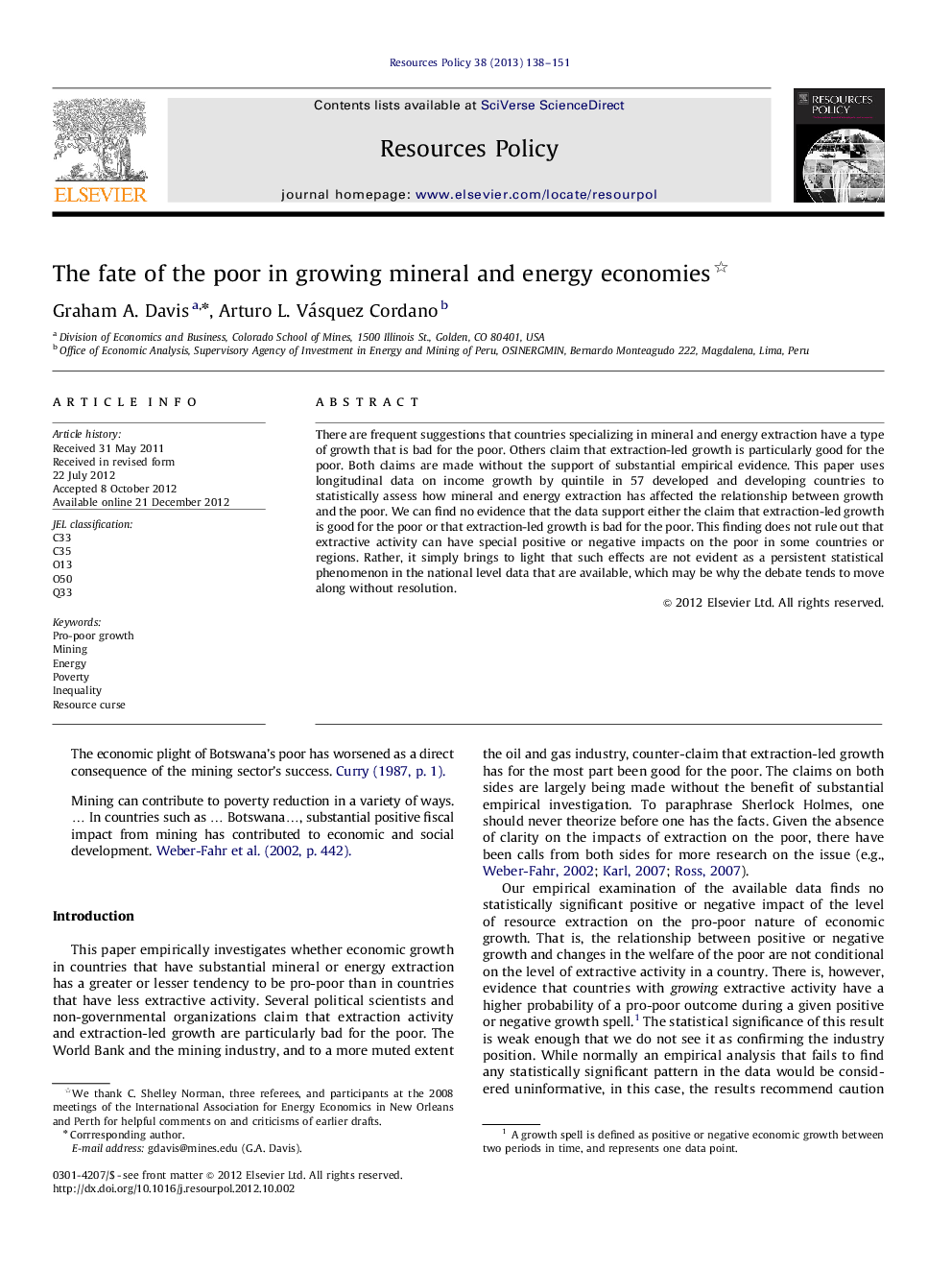| Article ID | Journal | Published Year | Pages | File Type |
|---|---|---|---|---|
| 985700 | Resources Policy | 2013 | 14 Pages |
There are frequent suggestions that countries specializing in mineral and energy extraction have a type of growth that is bad for the poor. Others claim that extraction-led growth is particularly good for the poor. Both claims are made without the support of substantial empirical evidence. This paper uses longitudinal data on income growth by quintile in 57 developed and developing countries to statistically assess how mineral and energy extraction has affected the relationship between growth and the poor. We can find no evidence that the data support either the claim that extraction-led growth is good for the poor or that extraction-led growth is bad for the poor. This finding does not rule out that extractive activity can have special positive or negative impacts on the poor in some countries or regions. Rather, it simply brings to light that such effects are not evident as a persistent statistical phenomenon in the national level data that are available, which may be why the debate tends to move along without resolution.
► We examine the plight of the poor in growing mineral and energy economies. ► We define pro-poor growth as both decreasing poverty and decreasing income inequality. ► We use a panel data approach over 57 developed and developing countries. ► There is no evidence that the fate of the poor is unusual in growing mineral and energy economies. ► This contradicts the received wisdom that extractive activity is pro-poor or anti-poor.
